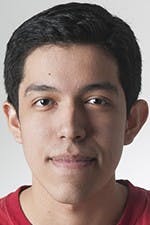My paradise might not be perfect, but a paradise it remains. For me, this was the perfect identification of my country before I left it.
Honduras might not seem to stand out in the map for most of my peers at MSU. People always ask “Where is that?” or in all honesty, they might not have even heard of it. I might get a laugh here or there from my peers when I wear my Honduran soccer jersey. But for me, Honduras is a land of pleasure in the most pragmatic sense.
Coming from Honduras to the U.S., my transition was extremely difficult. I yearned to return to my country as soon as possible. This, of course, was impossible given my parents kept telling me it was important for my education, and so I remained at MSU.
I kept getting jealous of my friends at MSU who had the opportunity to see their families on the weekends and still complained the following Monday because they “felt bad whenever they left their family.”
I kept feeling like I was in a prison, not being able to drink alcohol in public (or at all), not being able to go to a discotheque (or a club, as Americans call it) and having to know that if I made one mistake, I could be deported back to Honduras. Rebelliousness was not in the cards for me.
I had to fit the norm. I developed a certain animus toward the authorities, such as my RAs and patrolling police officers around me, feeling like they watched my every move. I know that in my country, the said authorities could be bought off with a coca-cola and a $5 bill. I missed the intrigue of corruption lurking around me at times. I had become disengaged from those around me because I was afraid to stand out. But about halfway through my first semester, I became acclimated to a different standard in the US. I began to realize how naive and misled I had been towards the notion of a rule of law regime.
How could I for a second believe that corruption had its perks, when it clearly did not? After the first month of transition, I came to compare both of these worlds — one of them degenerate by a mafia of drug dealers and corrupt politicians; the other predicated on how the constitutional imperative is to go hand in hand with social cues governing the U.S.
The application of law in the U.S. has such a perfect standard that I wish was mirrored by my country. Honduras seems to have many incidents regarding drunk driving and minors in possession. These incidents could be avoided by having officers that actually practice the law and won’t sell out.
What exactly are the benefits of living in the U.S.? First of all, the reassurance of safety. You see, in my country, you would be lucky to walk a block without a bodyguard without getting shot. That is not an exaggeration.
In Honduras, most people within the middle and upper classes have a bodyguard who carries around one or more firearms at all times. All cars have bulletproof windows, and all houses are fenced with barbed wire.
My first year living in East Lansing has helped me realize that proper law application makes for law-abiding citizens, which is the ultimate perk. This is something I did not realize at the start of my transition from country to country. I hope that Honduras can someday have authorities that actually follow through with the justice and can uphold their allegiance to the law with proper dignity. Rules are necessary. They provide proper peace of mind — a benefit the Honduran paradise can’t have, at least for now.
Now as I am getting ready for my return to Honduras for the summer, I have a bittersweet sensation. Although I get to see my family members and friends once more, I will have to be locked down in my house without the opportunity of walking through the streets alone. I will have to make sure not to mess with the wrong people and will to be subjected to censorship in my writing. I will love being close to my Honduran friends and family, but I will be anxious to return to the freedom I have on MSU’s campus.
Rafael López Aguilar is a State News guest reporter. Reach him at lopezagu@msu.edu.







